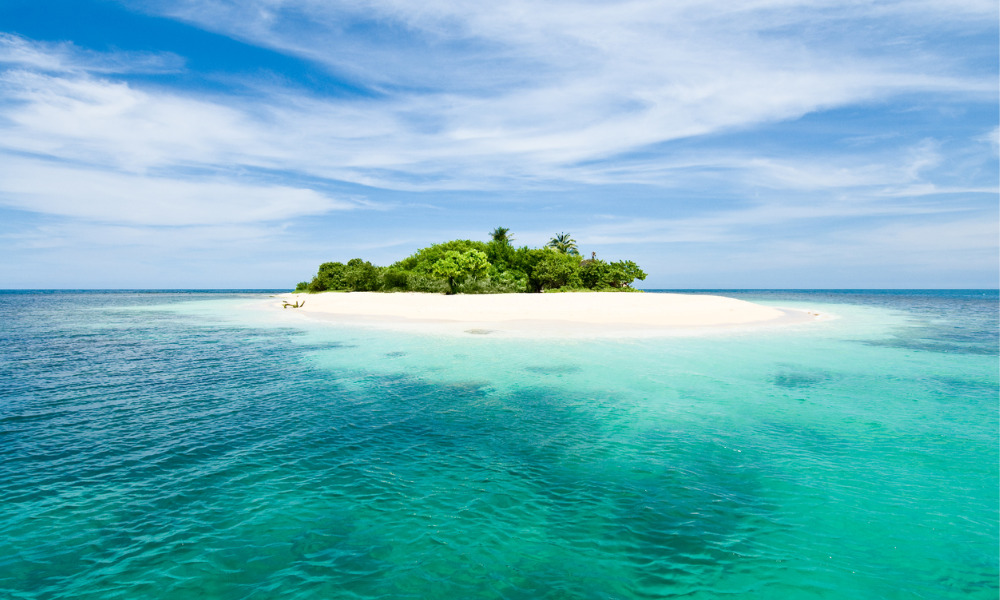
Tech firm takes flexibility to a new high with an office hub in paradise

Working from home is one thing but working from a tropical island takes flexibility to a new level.
Lapping up the sun, sand and the ultimate beach lifestyle on Queensland’s Magnetic Island might sound too good to be true.
But that’s not the case for employees at tech consultancy Mantel Group after it recently announced plans to launch two new office hubs.
The workspaces on Magnetic Island and in New Zealand’s ski capital Queenstown will be in addition to new offices in Brisbane, Canberra and Auckland.
Mantel Group’s existing offices in Sydney and Melbourne will also undergo a refit over the next six months.
HRD spoke to Mantel Group’s head of people and culture, Caroline Henshaw, about why the company is investing in flexibility.
“For us now, it's about looking at the purpose of the workplace. Our hubs in Brisbane, Canberra and Auckland will be driven by the clients and team members in those locations over the next 12 months,” she said.
“Our Magnetic Island and Queenstown hubs are more about thinking about workplaces in a different way. If the team are collaborating and coming together then why not do it in places they want to be.
“A lot of our team are people who enjoy traveling so not being able to go overseas has really impacted them. That’s why with these hubs, we looked at how you can blend work and lifestyle together.”
Read more: Flexibility set to be key battleground issue as employers push for office return
The Queenstown hub was chosen because many Mantel Group employees enjoy skiing, while the Magnetic Island location was inspired by an existing staff member.
Software Engineer Ben Howl relocated to the island from Melbourne 18 months ago with his family, allowing him to remain in the job he’s passionate about while enjoying his dream lifestyle.
“When I presented the plan of relocating to the island to both Mantel Group and my clients, the reception was overwhelmingly positive,” he said.
“The progressive support that Mantel Group has offered has been quite unbelievable. As much as I love working from the island, I do miss interaction with my colleagues.
“I raised the idea with Mantel Group to consider an office on the island and I can hardly believe it is actually happening. I’m looking forward to having colleagues and clients visit.”
Both the Queenstown and Magnetic Island hubs will allow team members to relocate, enjoy working holidays, meet with colleagues, undertake internal training and host clients for off-site workshops.
Henshaw said as an HR leader, it has been incredibly rewarding to be forward-thinking when it comes to flexibility and the response from employees has been positive.
She acknowledged that the tech industry is a talent-short market and to attract and retain the best staff, employers like Mantel Group have to step up to the plate.
But venturing into regions like Queenstown and Far North Queensland will bring other benefits too.
Read more: Kathmandu’s HR lead on flexibility, freedom and the great outdoors
Pre-Covid, most tech workers have had little choice when it comes to where they live, especially for those just getting started in the industry.
Melbourne or Sydney have long been the two most common options, drawing those with an interest in tech from other parts of Australia like Queensland, Adelaide and Perth.
But the rise of remote and flexible working arrangements has changed that, and in time, it may help to redistribute the talent pool across a wider section of the country, bringing job opportunities and economic benefits to regions outside of the two main cities.
Queensland has also been heavily impacted by the international border closures because of its reliance on tourism.
“It’s a great way for us to find talent in places where perhaps people hadn’t been looking for a new job or to inspire people who might live in areas like Townsville, for example, to seek out a career in tech,” she said.
“If we can encourage our people and their families to go to different places, and maybe even inspire other organisations to consider doing something similar, it would be a fantastic way to help with tourism and the impact of Covid.”